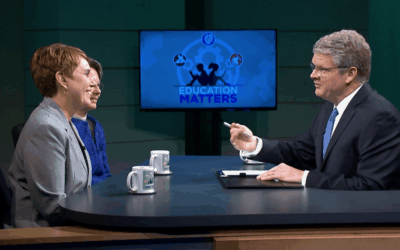The creation of a system of taxpayer-funded public schools accessible to all is one of America’s greatest achievements. Public education evolved in this country to not only serve the needs of individuals, but the public overall because our leaders understood having a well-educated citizenry was important to the protection of our democracy.
In North Carolina, public schools are ingrained into the fabric of our state’s identity. The Public School Forum of North Carolina believes—and the evidence shows—that this is a very good thing. Public education is one of the few institutions left where we all still come together regardless of color, religion, and wealth. Does anyone question that we need that now more than ever?
As we prepared our list of the Top Ten Education Issues for 2019, we examined many of the same issues we have highlighted in recent years: improve teacher recruitment and retention, close gaps and shortfalls in school funding, address racial equity in our schools, and implement transparency and accountability in the state’s private school voucher program. There are also important new ones, including a need to focus on the unique education challenges of rural North Carolina. Those demand attention.
But looking at the sum of these issues, what came into focus was a troubling and significant erosion of our state’s historic commitment to public schools. That’s why we believe the Number One issue for 2019 should be to: “Renew North Carolina’s Commitment to Public Schools for the Public Good.”
In recent years, many state-level policy decisions have discredited and devalued our public schools.
- Our per pupil funding sits at 39th nationally, almost 8 percent lower than a decade ago, adjusting for inflation.
- Our state’s A-F school grading system stigmatizes schools that serve our most disadvantaged students instead of providing the resources that they need to be successful.
- The emphasis on nebulous values of choice and competition have led us astray from the intended purpose of public schools serving the public good.
- Remarkably, the narrative that surrounds public education has often blamed teachers and school leaders for perceived failures, when in reality we should be shining a light on broader systems of inequity and our own systematic dismantling of support for and trust in our schools.
One example we include this year is the impact of the rapidly growing number of charter schools in the state. The charter school landscape looks very different now than in the early days when they were promoted as “laboratories of innovation,” incubating new teaching practices and school models that could be scaled up.
Early on charter schools were by and large managed as home-grown nonprofits with local community boards. Today, as the number of charters has doubled in the past eight years, one-fifth of North Carolina’s charter schools are operated by for-profit charter management companies, 80 percent of which are headquartered outside of the state, far away from the communities they purport to serve with educational innovations sensitive to local needs.
The most recent troubling development was legislation passed last year allowing for the creation of a new kind of municipal charter school. It permits four mostly white suburban communities outside Charlotte to create and run their own schools with spots reserved for their own residents. Without question this will exacerbate resegregation that is already occurring at an alarming rate in our public schools.
As the erosion of North Carolina’s commitment to public schools for the public good grows with each year, for 2019 we are asking our state leaders to remember the value of public education in our society and re-commit our state to traditional public schools, educators, and students. Public schools are the pillars of strong communities and supporting them is key to the future well-being of our state. It’s in all of our best interest. Republicans and Democrats alike campaigned last year as champions for public schools. It’s time to come together and show it.



